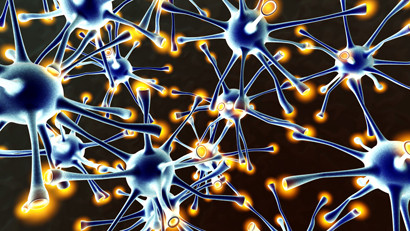News
Novel drug stabilizes dopamine to treat alcohol dependence

An experimental drug that stabilizes dopamine levels in the brain may reduce cravings for alcohol in those with alcohol use disorder (AUD). Unlike other medications currently available to treat AUD, OSU6162 is unique in targeting dopamine levels in the brain.
Dopamine is a neurotransmitter involved in emotions, movement, and sensations of pleasure and pain. Drinking alcohol causes the brain to increase production of dopamine, producing feelings of well-being in the drinker. With continued drinking over time, the brain’s reward system becomes desensitized to alcohol, and dopamine production is lessened. Because of this effect, more alcohol is needed to achieve the same feelings of pleasure and well-being brought on by previous drinking experiences. Ultimately, a person who has been drinking for a long time will need alcohol just to feel normal, an indicator of addiction. The new drug, OSU6162, is believed to normalize dopamine levels and therefore decrease cravings for alcohol.
Swedish scientists conducted two separate experiments to evaluate the efficacy of OSU6162. In a randomized trial, 56 alcohol dependent men and women were split into two groups. Half were given the experimental drug and half were given a placebo. The participants, who would normally drink the equivalent of a bottle of wine per day, did not drink for at least four days before receiving the medication. They were then allowed to drink as much as they wanted for two weeks. At the completion of the study, published in the journal European Neuropsychopharmacology, the group who had taken the experimental drug reported lower cravings for alcohol than the placebo group. Only mild side effects were reported by all who took the new drug, a key finding since other medications that target dopamine have been associated with unpleasant side effects. “One interesting secondary finding was that those with the poorest impulse control, that is, those thought to be most at risk of relapse after a period of abstinence, were those who responded best to the OSU6162 treatment,” said Pia Steensland, neuroscientist at Karolinska Institute in Sweden and co-author of both studies.
This early-phase trial was conducted in conjunction with a simultaneously published animal study which showed that giving OSU6162 to “alcohol rats” returned their dopamine levels to normal.
Larger clinical trials will be needed to determine whether OSU6162 can contribute to the treatment of AUD.
“We do not believe that one pill is a quick fix out of a complex disorder such as addiction. However, if we, through medication with a compound such as OSU6162, can help these individuals to control their craving for alcohol, we can give them an increased ability to assimilate other, e.g., psychological treatments necessary to recover or control their drinking,” Steensland told Medscape Medical News. “The results of our studies are promising, but there is still a long way to go before we have a marketable drug.”
Links
Original OSU6162 article: Khemiri, L., Steensland, P., Guterstam, J., Beck, O., Carlsson, A., Franck, J., & Jayaram- Lindström, N. (2015). The effects of the monoamine stabilizer (-)-OSU6162 on craving in alcohol dependent individuals: A human laboratory study. European Neuropsychopharmacology.
Original animal study article: Feltmann, K., Fredriksson, I., Wirf, M., Schilström, B., and Steensland, P. (2015) The monoamine stabilizer (?)-OSU6162 counteracts downregulated dopamine output in the nucleus accumbens of long-term drinking Wistar rats. Addiction Biology.